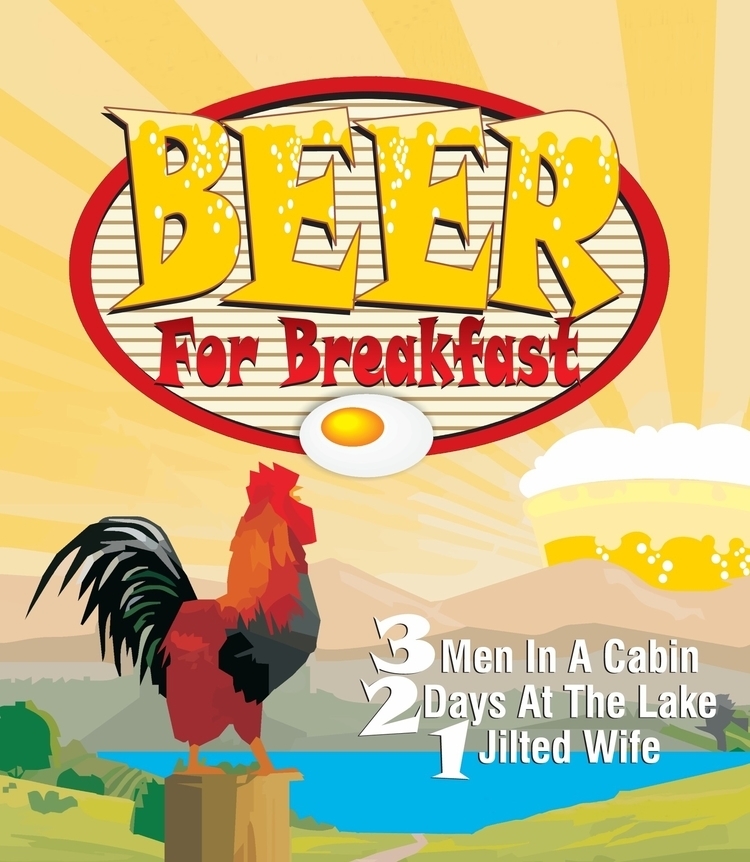Review: BEER FOR BREAKFAST at Boise Little Theater

I like going to Boise Little Theater. It's a great space with history. The old carpet. The unique three stages. I like the photo collages of previous shows. I like watching friends shine and new comers surprise us. Although my preferences aren't always in line with the theater's season, the little things that make it an experience can always be found.
Last Saturday, I went to Boise Little Theater with two friends to see the closing night performance of Beer for Breakfast by Sean Grennan. I had not previously heard of the show, but it included some of my favorite people to watch on stage.
The show starts as TJ (John Myers) and Mark (Paul Archibeque) arrive at a friend's cabin for a "guys weekend." Soon, their friend Robert (Bradley Campbell) arrives, who has recently suffered a stroke. Immediately it gets uncomfortable. Not because of Campbell's portrayal of Richard -- no, that was very honest and sincere. I never once felt that the actors or director were mocking the character or the situation; no, this was all on the playwright. Grennan used the character's slurred speech as a gimmick for cheap laughs. Archibeque's character, Mark, had to translate for Richard. Later, to illustrate what an insensitive and shrewish woman she is, Jessie (Anastasia Van Allen) gives him an impromptu speech therapy lesson. It was written for laughs, but I was not amused.
Ultimately, the Guys Weekend turns into a Battle of the Sexes when their friend's wife arrives instead of the friend -- using old and stale "tests" to prove which sex is more superior. Apparently arm wrestling, belching, and naming car songs proves you're a man. And flexibility, spelling, and spin the bottle proves that you're a woman.
Although Scene Four opens with a scoreboard marked heavily in female wins, they. Keep. Playing. Longer than they wanted to. Longer than the audience wants them to. But our four actors did it and did it well.
Eventually the story shifts from cheap jokes to more sincere moments of past relationships, feelings of failure, and betrayal from the friend who never showed up. I didn't like the use of this invisible character who made his soon-to-be-ex-wife break up with his college buddies. It was a weak choice, again, by the playwright. They spent a lot of time telling us about him, but never showing the relationship. It was a lot of exposition and story telling for a character we never meet, despite his "actions" changing the attitudes and focus of the cast.
We leave with everyone having a renewed sense of purpose, ready to take on the world. But no matter the lesson -- the toxic masculinity, the disability jokes, and the homophobia aren't excusable, and at least for this audience member, were not appreciated.
Now the rest of the audience seemed to bubble along with laughter -- remembering what it was like to dance with your girlfriend in the quad the night before graduation. Before kids and bills and high cholesterol levels gripped at you from every angle. I firmly believe that although I didn't like the script, that the target audience may enjoy it and have a fun, light-hearted time.
This was Helene Myers' directorial debut and she did a lovely job. The set was fine and the blocking was smooth, and again, it never felt mean-hearted. The cast was comfortable together and their dialogue felt like a conversation; they could legitimately have this past together.
I hope Helene Myers continues to direct, as her heart and spirit are uplifting and we all need a bit of that.
Reader Reviews

Videos
